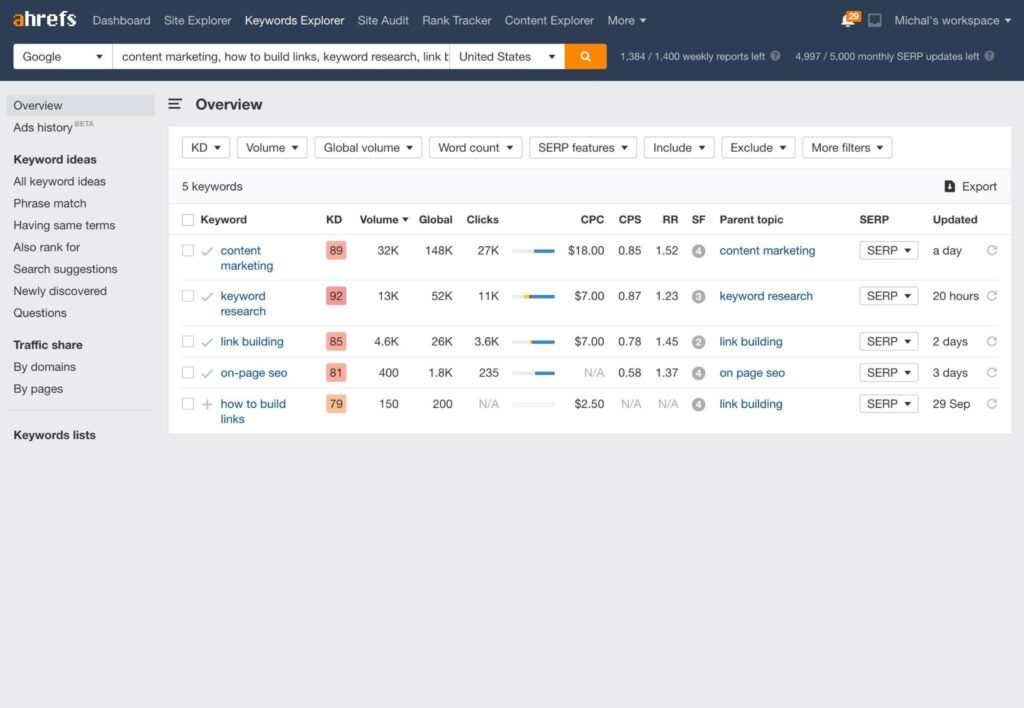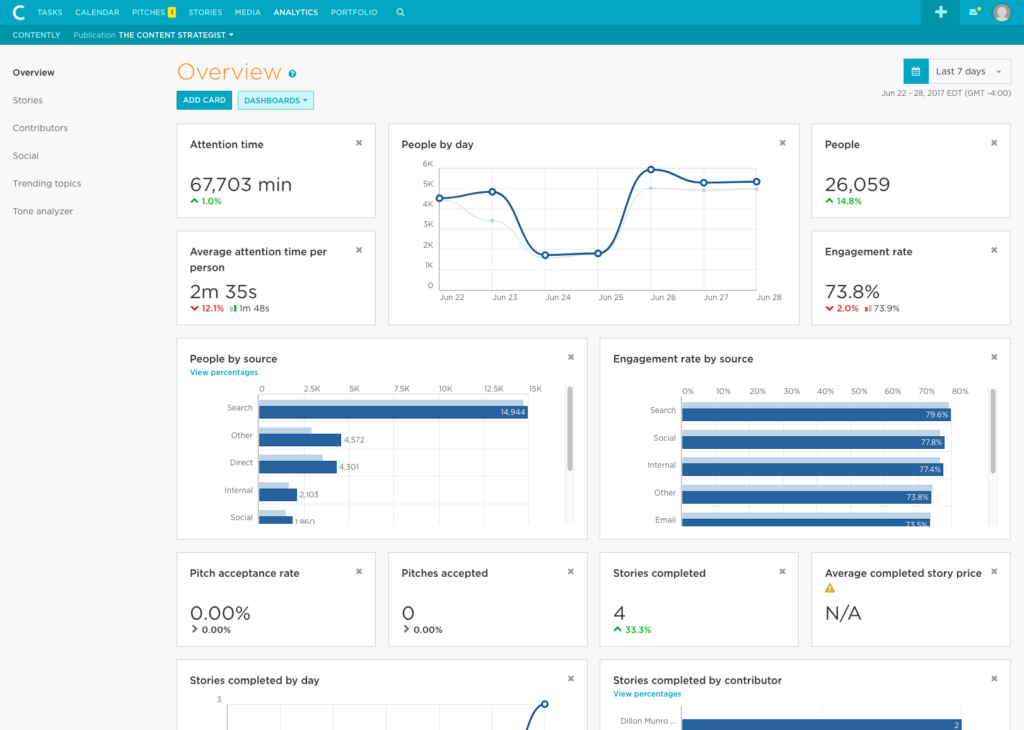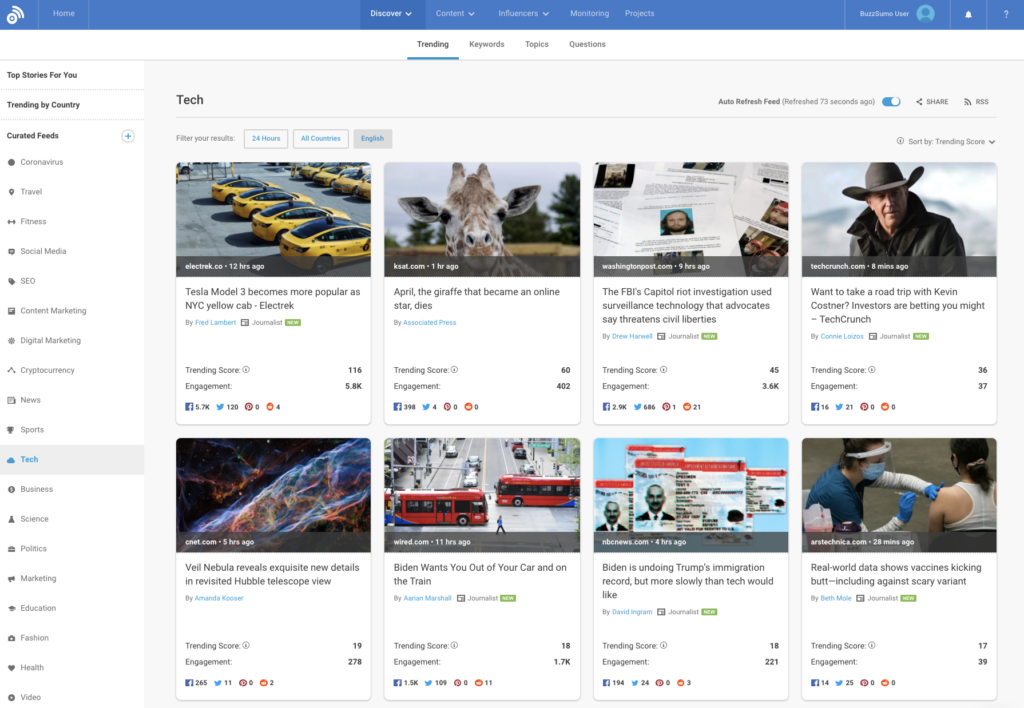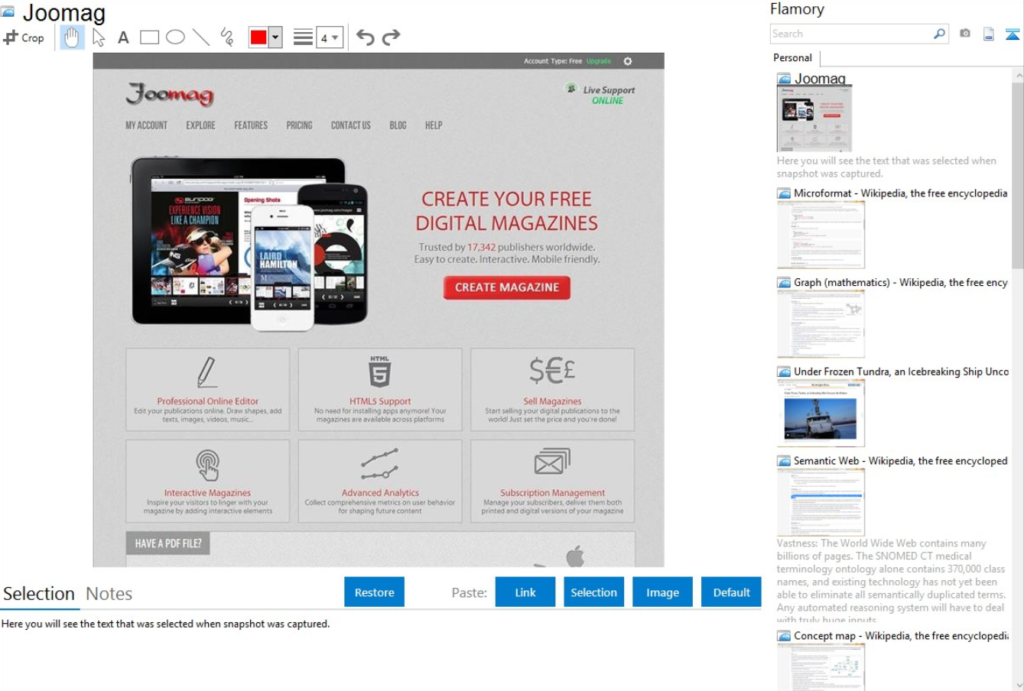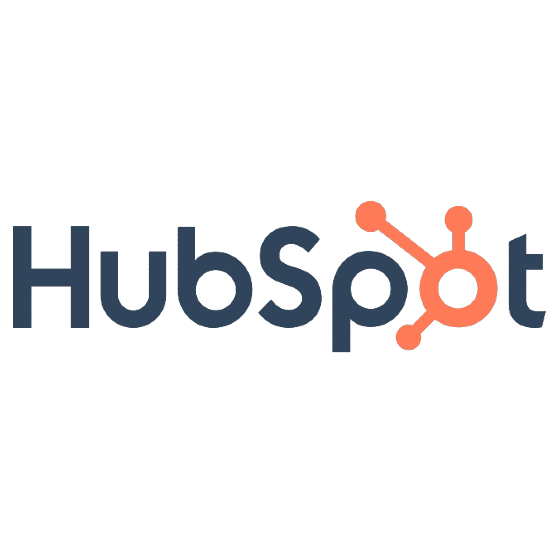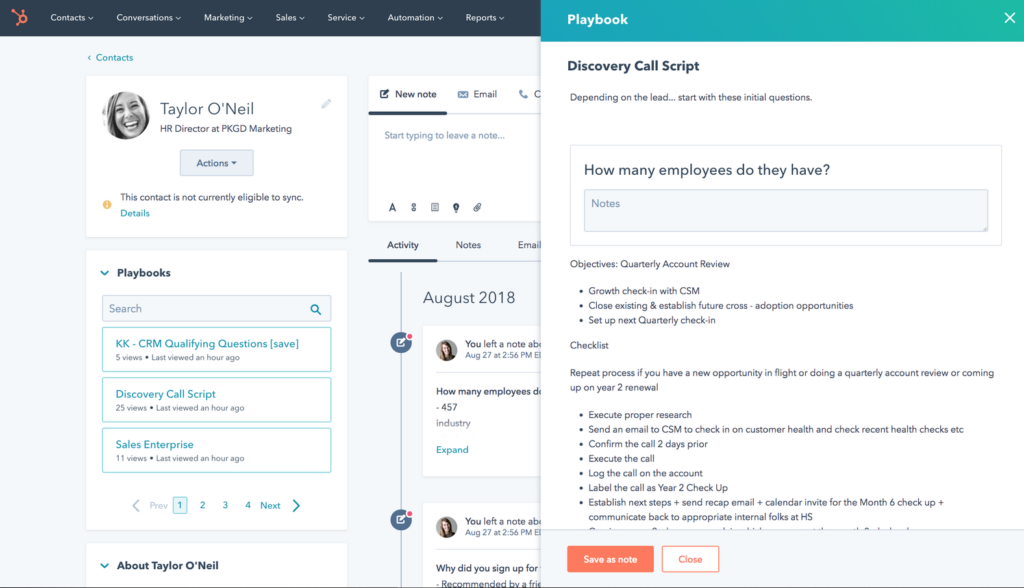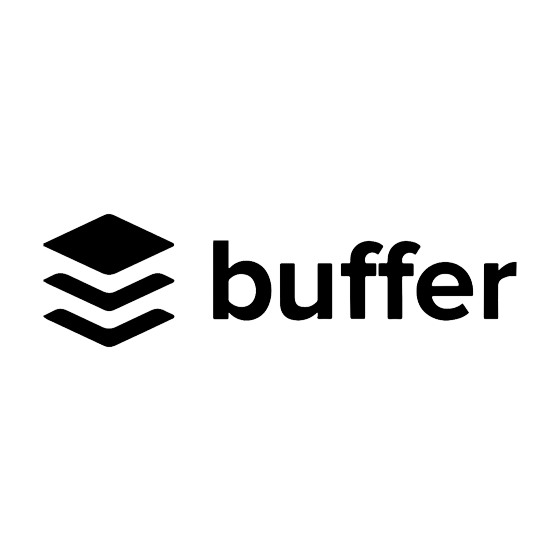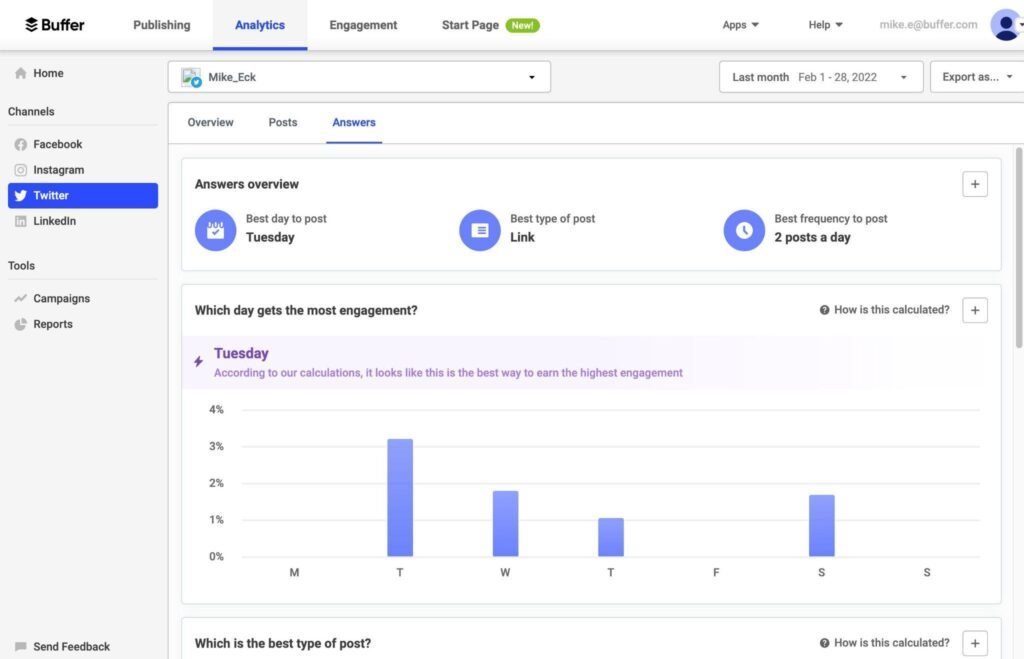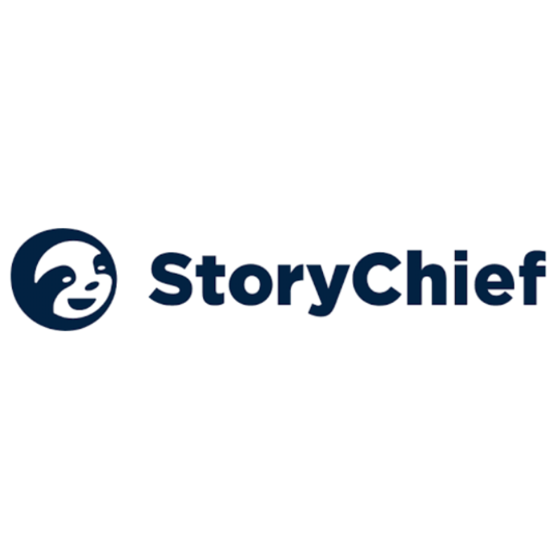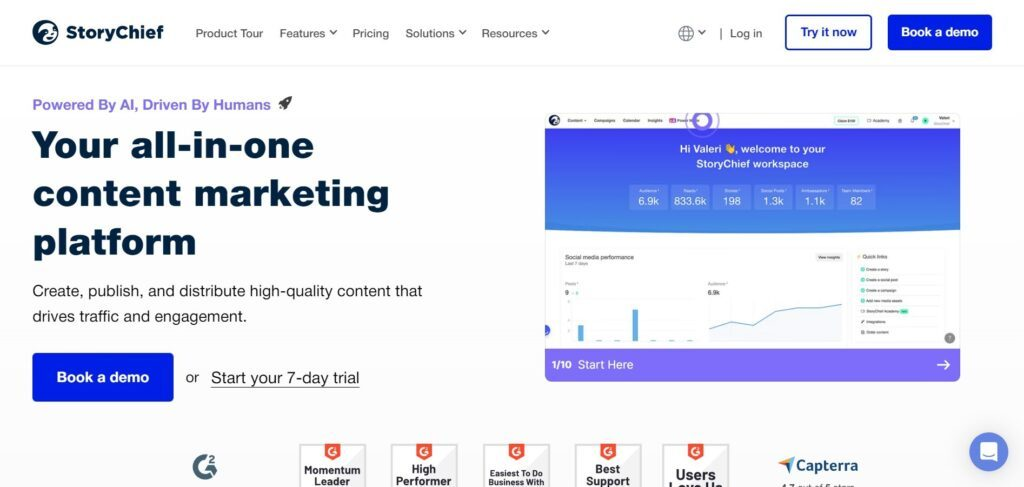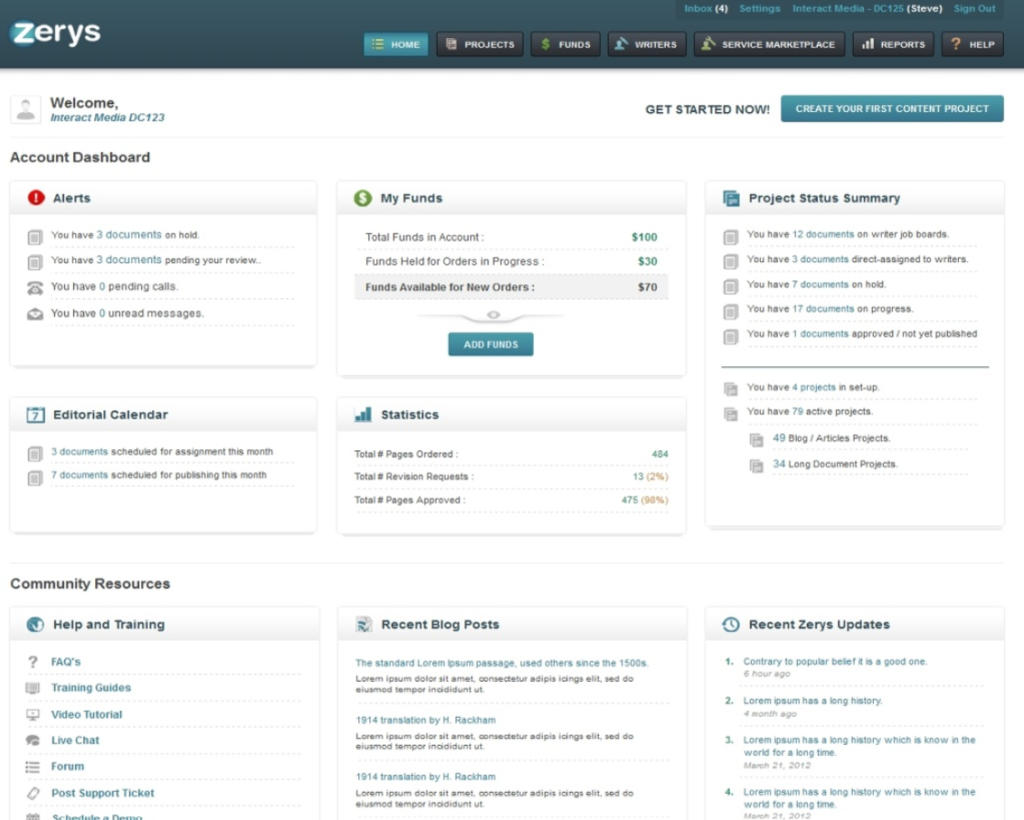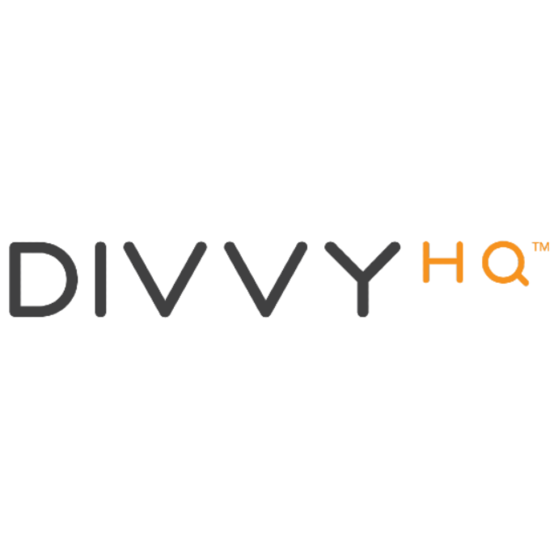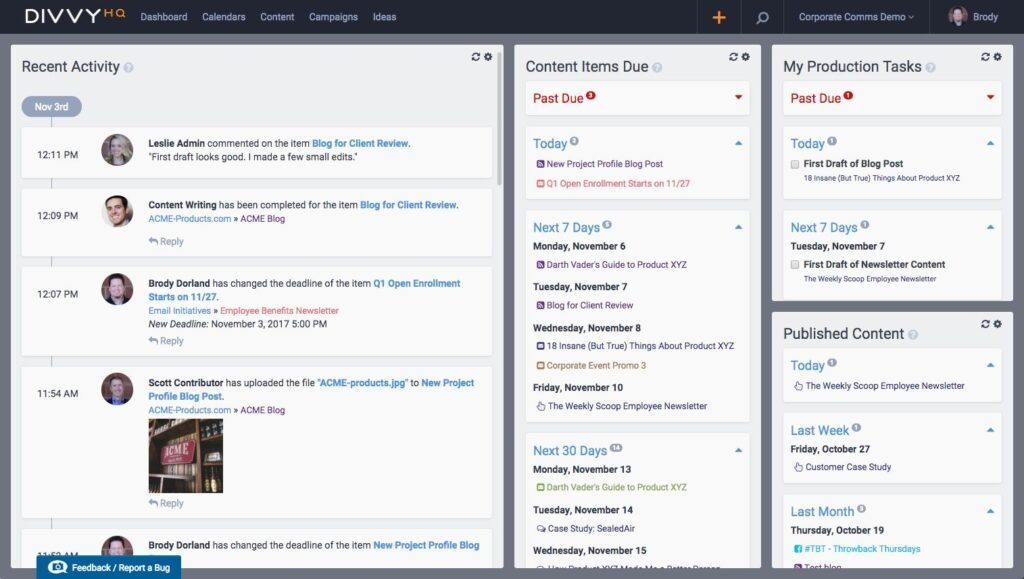10 Best Online Content Marketing List
Here's my pick of the 10 best software from the 10 tools reviewed.
Our one-on-one guidance will help you find the perfect fit.
With so many different content marketing platforms available, figuring out which is right for you is tough. You know you want to streamline and enhance the creation, management, and distribution of ecommerce content—but now need to figure out which tool is best. I've got you! In this post, I'll help make your choice easy, sharing my personal experiences using dozens of different content marketing tools with large stores and product lists, with my picks of the best content marketing platforms overall.
What is a Content Marketing Platform?
Content marketing platforms are specialized tools that assist businesses in creating, managing, and distributing content to engage their audience and achieve marketing goals. These platforms offer features like content creation, workflow management, analytics, and distribution channels, enabling marketers to efficiently orchestrate their content strategy. The purpose is to help in aligning content with business objectives, tracking performance, and optimizing content for better reach and engagement.
Overviews Of The Best Marketing Platforms
Here’s a brief description of each of the content platforms that are featured on this top 10 list.
Ahrefs provides businesses with in-depth content performance reports.
Why I picked Ahrefs: The platform provides powerful reports to help you analyze your content and see where it’s ranking compared to your competition. Ahrefs has reports that uncover your competition’s organic keywords, backlink strategies, and PPC keywords. With this information, you and your teams can create content that will rank on search engines.
Ahrefs works for any sized organization that needs help planning and optimizing its website and content for search engines. The software provides a site explorer tool that will allow you to enhance search traffic with your content. With this tool, you can access crucial information regarding your content’s ranking and how it compares to other relevant content.
Ahrefs Standout Features and Integrations
Features include competitor analysis, keyword research tools, keyword tracking, rank tracking, site auditing, data dashboards, and list management.
Integrations include Marketing Miner, GuinRank, Rambox, Google Search Console, AgencyAnalytics, DashThis, Desktop.com, Rank Ranger, Klipfolio, Pipedream, and SEO Review Tools.
Ahrefs costs from $99/month when paying month-to-month or $83/month when billed annually. Ahrefs doesn’t provide any free trial information.
PROS
Understandable dashboard and interface
Extensive content research tools
It’s an all-in-one SEO solution
CONS
No free trial
Expensive subscription tiers
Contently provides an all-in-one tool that gives everything a business needs to plan and create content.
Why I picked Contently: The platform is a robust, all-in-one tool that gives your businesses the features you need to plan and create content, engage with your audience, and optimize your content’s output for the best results. Contently uses a story idea algorithm that recommends concepts likely to perform well in search engines, so your content team can start generating content based on these ideas. The platform can keep your content team on track by providing a documented content strategy that stores and applies your content goals throughout every stage of the writing process. Contently can also help your organization stay ahead of trends with its search and social listening capabilities that show you which topics, formats, channels, and tone of voice will engage your audience.
Contently works well for larger enterprises that need a solution that will help their teams create, schedule, and publish content from one platform. If you need new content creators, Contently provides a creative marketplace with over 160,000 vetted writers, journalists, videographers, illustrators, designers, and other creators to add to your team. The platform handles the staffing, management, invoicing, and payment processes on your behalf so you can focus on creating compelling content.
Contently Standout Features and Integrations
Features include audience targeting, brand management, editorial calendar, publish scheduling, distribution management, conversion tracking, social media management, portfolio screening, and project management.
Integrations include Mailchimp, WordPress, Zapier, HubSpot Marketing Hub, Pardot, Wufoo, Shift, Marketo, Adobe Experience Manager, Drupal, Eloqua, and Outbrain.
Contently offers custom pricing upon request. Contently provides a free demo to help you understand whether the platform is right for you.
PROS
Exceptional account success team
User-friendly and adaptable
Great for content collaboration
CONS
Managing the calendar can be complex
The initial setup is complex
BuzzSumo helps businesses find influencers who will most likely help share your content effectively.
Why I picked BuzzSumo: If you’re sharing your content on social media, BuzzSumo can help you find relevant influencers with a history of sharing similar content. The Top Sharers tool within BuzzSumo will pinpoint these influencers and reach out to them to find out if they’re willing to share your content to expand your reach. The platform will track your content’s performance and create in-depth reports to help you see if the influencer’s efforts are working.
BuzzSumo is an excellent option for businesses needing a solution for content insights to help them create content ideas and monitor performance. BuzzSumo’s comprehensive analytics lets you see what content works best and where you need to make improvements. You can use the tool to find the words and phrases your target audience is searching for online and create high-performing content based on that information.
BuzzSumo Standout Features and Integrations
Features include brand management, audience targeting, conversion tracking, social media management, distribution management, influencer discovery, SEO auditing, competitor analysis, and keyword research tools.
Integrations include a powerful API that allows users to build custom integrations.
BuzzSumo costs from $119/month when paying monthly or $95/month when billed annually. BuzzSumo offers a free 30-day trial to new subscribers.
PROS
Useful content analyzer
Conducts in-depth keyword research
Excellent content selection tools
CONS
Pricey for some users
Complex setup process
Joomag
Digital publishing platform with interactive content creation, multi-channel distribution, performance tracking, and monetization.
Joomag is a digital publishing solution with search engine optimization tools to help your marketing content rank higher through search engines. It has a library of more than 300 templates across 12 different content types, like catalogs, photo albums, newsletters, ebooks, and user manuals.
Joomag allows you to add videos and audio files to your content from your computer, Vimeo, or YouTube to make your content more engaging. It’s truly a content hub for all things marketing-related.
You can use Joomag’s engagement insights feature to see your views, session duration, and bounce rates. This content creation software has geographic insights features to learn where your readers are coming from and help you create targeted content.
Joomag also has a traffic insights feature to see the percentage of website traffic coming from referrals and direct visitors.
Joomag integrates with other content marketing tools like Google Drive, Insightly, Marketo, and Mailchimp.
Joomag pricing starts at $50/month/account and offers a demo
HubSpot
Drag-and-drop landing pages and email templates, real-time SEO suggestions, social media promotion, and A/B testing help.
Hubspot is a cloud-based marketing platform to help you manage your sales and marketing channels in one place. You can do blogging, SEO optimization, ad tracking and management, social media management, video, and live chat through the same platform.
With Hubspot, you can build personalized, automated marketing campaigns that address different customer segments and then track successes and failures with built-in analytics and custom reporting. You can also post/schedule content to social media, design and host a blog, and do ad retargeting. You can further empower B2C and B2B content marketing by connecting with HubSpots other solutions for sales, CRM, and customer service.
You can connect Hubspot with other content marketing tools like Mailchimp, Google Ads, Canva, and Shopify.
Hubspot is free with some feature limitations.
Pricing starts at $45/month and comes with a free 30-day trial.
CoSchedule provides tools that will help businesses coordinate their content projects effectively.
Why I picked CoSchedule: The software lets you coordinate all your content marketing projects and campaigns in one platform. CoSchedule specifically focuses on providing a centralized content calendar to help you plan what content to publish and when. CoSchedule includes an editorial calendar and features that will help you manage your social media, assign tasks, and have team discussions.
CoSchedule is suitable for any sized business that doesn’t need a full-blown marketing suite and is looking for a robust editorial calendar. The software helps you create a single publishing calendar that acts as your content blueprint for blogs, social media, emails, and other content types. CoSchedule also serves as an asset repository where you can store, index, and share your content assets.
CoSchedule Standout Features and Integrations
Features include an editorial calendar, publish scheduling, social media management, campaign management, multi-channel publishing, asset library, brand control, workflow management, version control, and asset sharing.
Integrations include Wrike, HoneyBook, Basecamp, Desktop.com, Mailchimp, Google Analytics, Asana, Trello, Evernote, Constant Contact, Zapier, Google Drive, and ActiveCampaign.
CoSchedule costs from $39/user/month when paid monthly or $29/user/month when billed annually. CoSchedule offers a free forever subscription tier.
PROS
Effective content schedule recommendations
Drag-and-drop calendar tool
Perfect for managing multiple social channels
CONS
No alerts if a social account is unlinked
Has a slow load time
Buffer helps businesses publish content on their social media pages directly from the web interface.
Why I picked Buffer: The tool provides a range of social media content publishing tools that are simple to use. With Buffer, you can schedule your posts and publish content to several social media networks, such as Facebook, Instagram, Twitter, Facebook Groups, LinkedIn, and TikTok. You can use Buffer to drive meaningful engagement and brand growth by crafting different messages for each social network. The platform will publish your content for you to help you save time and showcase your work with automated reports.
Buffer is an excellent tool for any sized business needing a solution to help build their brand and connect with an online audience. The platform provides a suite of social media tools that are perfect for modern online brands that need to optimize their visual marketing, audience engagement, and analytics. Also, Buffer provides an artificial intelligence assistant that can help you generate ideas immediately and repurpose your existing content multiple times to help your business grow engagement across all your social media platforms.
Buffer Standout Features and Integrations
Features include customizable reports, multi-channel data collection, engagement tracking, brand tracking, automated publishing, content management, post scheduling, conversion tracking, social media monitoring, and customer engagement.
Integrations include ProjectManager, Desktop.com, Mailchimp, WordPress, Slack, Trello, Evernote, Google Drive, Zapier, Rebrandly, Typeform, IFTTT, and Zoho Flow.
Buffer costs from $6/channel/month when paid monthly or $5/channel/month when billed annually. Buffer offers a free tier that allows subscribers to manage up to three channels. The vendor also provides a free 14-day trial for paid subscribers.
PROS
Top-notch analytics
Increases social media visibility
Automated publishing tools
CONS
Slow when uploading multiple images
Doesn’t support some hashtags
StoryChief allows users to create and publish content across multiple channels simultaneously.
Why I picked StoryChief: The platform makes it possible to publish articles across channels such as WordPress, Medium, Shopify, and other high-level sites. StoryChief also allows sharing this content across social media channels and your email marketing platform. It’s a robust tool that enables users to schedule a lot of content in a short amount of time.
StoryChief works well for organizations that need a solution to improve team collaboration. It’s likely that you have multiple people working on creating excellent content. StoryChief makes it possible to ensure everyone is in sync while working by providing a content collaboration workspace that everyone can access no matter where they are.
StoryChief Standout Features and Integrations
Features include content campaigns, content calendars, multi-channel marketing, content collaboration, SEO copywriting, AI power mode, analytics and reporting, social media management, employee advocacy, and content data management.
Integrations include Desktop.com, Mailchimp, WordPress, Slack, HubSpot CRM, Zapier, HubSpot Marketing Hub, Wufoo, Shift, Medium, Webflow, Integrately, Drupal, and Easyflow.
StoryChief costs from $40/month. StoryChief offers a free 7-day trial for new subscribers.
PROS
Built-in SEO guidance
One-click content distribution
Easy-to-use content workflow
CONS
Custom fields need improvement
Analytics is underdeveloped
Zerys
Blogging and video marketing solution with SEO research and a per-document cost system so you only pay for what you create.
Zerys is a content marketing platform with a focus on combining editorial strategy with sales initiatives.
Zerys connects you to professional writers for your content creation. It has a network of more than 85,000 professional writers to help you market with blogs, landing pages, product descriptions, and newsletters.
Zerys is perfect for eccommerce managers who would benefit from starting a blog for content marketing but just don’t have the time to do it all themselves. A blog can be used to target keywords your potential customers are searching online and draw them into your store.
You can build out marketing content that addresses comment problems your audience faces and explain how your products can help.
This can be great for inbound marketing efforts because you can tap into different subject matter experts that your audience will want to hear from.
Zerys pricing starts at $295/month/up to 4 blogs.
DivvyHQ is an all-in-one platform that lets businesses automate repetitive content marketing tasks with AI.
Why I picked DivvyHQ: The software is a content marketing platform you can use to develop content strategies, organize work, create new content, and measure results. DivvyHQ helps businesses with these processes by providing an AI and automation system that takes over specific parts of your content workflow. It simplifies various repetitive tasks, such as content calendar changes, style guide recommendations, content editing, workflow creation, and reports.
DivvyHQ is suitable for mid-sized businesses and large enterprises that need a solution to help ideate, plan, and produce significant numbers of content. DivvyHQ integrates with over 1,000 marketing software that will help your business upload and publish content quickly from the platform. The platform uses a real-time dashboard that allows your teams to monitor workflows and see updates automatically.
DivvyHQ Standout Features and Integrations
Features include content analytics, collaboration tools, content management, automation and AI, content planning, content templates, brand management, editorial calendar, social media management, and conversion tracking.
Integrations include Microsoft 365, WordPress, Dropbox, Microsoft OneDrive, Box, Google Drive, and Microsoft Outlook.
DivvyHQ costs from $89/user/month when paying monthly or $79/user/month when billed annually. DivvyHQ offers a free 14-day trial for new subscribers.
PROS
Manages multiple high-volume projects
Simple scheduling features
Easy to move content in the calendar
CONS
Overwhelming at first
The user interface needs improvement
The Best Marketing Platforms Summary
| Tools | Price | |
|---|---|---|
| Ahrefs | From $99/month when paying month-to-month or $83/month when billed annually | Website |
| Contently | Custom pricing upon request | Website |
| BuzzSumo | From $95/month when billed annually | Website |
| Joomag | From $50/month/account | Website |
| HubSpot | From $45/month | Website |
| CoSchedule | From $39/user/month when paid monthly or $29/user/month when billed annually | Website |
| Buffer | From $5/user/month | Website |
| StoryChief | From $100/month | Website |
| Zerys | From $295/mont | Website |
| DivvyHQ | From $89/user/month when paying monthly or $79/user/month when billed annually | Website |

Compare Software Specs Side by Side
Use our comparison chart to review and evaluate software specs side-by-side.
Compare SoftwareEcommerce Content Marketing Tool Comparison Criteria
Here’s what I look for when I select content marketing systems for review.
- User Interface: Content marketing is fast-paced, so I want software with a clean interface where all the useful features are within reach.
- Usability: Content marketing teams have members from different backgrounds, so I look for software that anyone can easily master.
- Integrations: We work with other software like CRM, payroll, and auditing, so I look for software that works great with other business tools.
- Value for Pricing: We want to increase our revenues without exceeding our budget, so I am looking for software with many useful features but reasonable pricing.
Key Features
- Content marketing automation: Automates the creation of content materials using AI.
- Idea generation: Tool for generating content ideas.
- Asset storage or generation: A hub for storing documents, images, videos, and content ideas.
- Editing suggestions: Suggestions to make copies tighter and more appealing to the target audience.
- Graphics creation: Helps you create graphics like images and videos to make your content more engaging.
- Multi-platform distribution: A tool to make your content suitable for publication on different platforms like blogs, landing pages, and social media accounts.
- Influencer targeting: A marketing strategy that leverages influencers to reach more customers.
- PR research/outreach: Research that studies the communications relationship between companies and customers.
- SEO/keyword help: Tool to identify keywords to help a content rank higher in search engines.
- Competitor analysis: Tool for gauging how competitors are doing and duplicating their best practices.
Other Content Marketing Tools
Here are a few more that didn’t make the top list. If your content marketing agency needs additional suggestions for digital marketing platforms, check these out.
A few more content marketing platforms
Looking for a different digital content platform? Here are a few more options. Think of them as runners up. They’re great, even if not top 10, and they might be just what you’re looking for.
- Skyword - Create, distribute, and measure quality content.
- GrowthHackers Workflow - Plan, manage, collaborate, publish content.
- Uberfip - Create personalized content destinations.
- Bynder - Digital marketing asset management.
- Cronycle - Discover, curate, and collaborate on producing content.
Discover what to write about
These tools help pinpoint what is trending and how you can capitalize on popular events, keywords, names, and other happenings. Be in the loop—and then talk about it.
- UContent - Helps distribute relevant third-party content.
- BuzzSumo - Marketing AI to identify relevant influencers.
- Percolate - Systemize the marketing supply chain to create faster.
- SEMrush - An expert in SEO tools for your content.
- Ahrefs - Learn how to emulate competitors who rank high.
Plan your stories
Even the top content marketing platforms can’t help you if you are all out of ideas. Sometimes we just need a brainstorming session or a writing prompt to get us started. These tools will help.
- Portent’s Idea Generator - Enter a subject and get a snappy 4-part headline.
- Airtable - A spreadsheet-database for planning content.
- StoryChief - A collaboration tool for SEO blogs and social posts.
- Monday.com - A full project marketing suite for content creation.
Write your content
This content software is focused on taking your ideas and polishing them so that they are the best that they can be. Grammar, business, tone—no problem!
- vWriter.com - Plugin RSS feeds from content sites all over the web.
- Hemingway - Tighten up your writing with removal suggestions.
- Content Snare - Content workshops, video series, templates, and more.
- GatherContent - Unify content creation, workflow, and collaboration.
- ContentSnare - Collect content and files without email.
- Grammarly - Correct grammar, spelling, and readability with AI suggestions.
- Curata - Discover, curate, and share relevant content.
- Scoop - Research and publish the best content.
- Rockcontent - Solutions, talent network, and creative services.
Promote your content
Content won’t help you if nobody sees it. That’s why tools like these that specialize in promotion, sharing, and advertising are an important cog in your marketing machine.
- AgoraPulse - Schedule your content, get reports, and engage followers.
- CoSchedule - A family of Agile marketing products.
- HootSuite - Find, schedule, manage, and report on social media content.
- SocialBee - Automate your social media posting and find your best evergreen content.
- Later - Visually plan, schedule, and analyze posts for Instagram, Facebook, and Twitter.
- Sprout Social - Uncover trends and actionable insights from social data.
- Falcon - Create paid and organic posts for all your social networks.
- Loomly - Provides you with optimization tips when you create your posts.
- Zoho Social - Schedule unlimited posts and create custom reports.
- Autopilot - -Marketing automation software made visual.
- Freshmarketer - Nurture your customer relationships with email marketing.
- Outbrain - Manage and monetize content by personalizing the editorial experience.
Outreach to get others to promote your content
Marketers: You’re not in this alone! There are other teams and individuals who would happily share or swap content to amplify your brand and theirs. These tools will help you network.
- ShareIt - Search and share the latest articles on any topic.
- Social Animal - Find and analyze top-performing content for any topic or competitor.
- NinjaOutreach - Filter through millions of influencers' insights for the right fit.
- Lemlist - Ready to use cold email templates with drag-and-drop.
- Pitchbox - Influencer outreach and content marketing platform.
- JustReachOut - Find the most relevant journalists and press opportunities.
- Muck Rack - Easily search for journalists and monitor news.
- One Pitch - Easy-to-use pitch templates for verified media contacts.
- Prowly - Find relevant journalists, tailored to your industry and location.
- Buzzstream - Research influencers, manage relationships, and conduct outreach.
Analytics to see how your content is performing
You’ve created, posted, shared, promoted your content. But how do you know if all of your efforts were successful? These analytics apps will help track traffic and revenue.
- YouScan - Analyze texts and visuals on social media.
- PathFactory - Create micro-personalized content journeys.
- Crazyegg - Improve what's working, fix what isn't, and test new ideas.
- Hotjar - Heatmaps, records, and conversion funnels.
- VWO - Discover insights, test ideas, and improve engagement.
- Serpworx - Over 31 SEO metrics with minimal menuing.
Other Ecommerce Marketing Software Reviews
Here are a few other lists of key ecommerce marketing software that you can consider for your overall marketing strategy.
- Ecommerce Marketing Tools
- Marketing Resource Management Software
- Ecommerce Email Marketing Software
- Marketing CRM Software
- Marketing Automation Software
- Marketing Attribution Software
What Do You Think About The Above Digital Marketing Software?
Have you tried out any content platforms listed above? Are there any content publishing platforms that you think we are missing from this list?
Do you use any automated content creation tools, or are you still working all hands-on? Are you looking for more comprehensive solutions? Check our list out of the 10 Best PIM Software.
Let me know in the comment section.
Also Worth Checking Out: How You Can Use Influencer Marketing To Boost Ecommerce Sales


